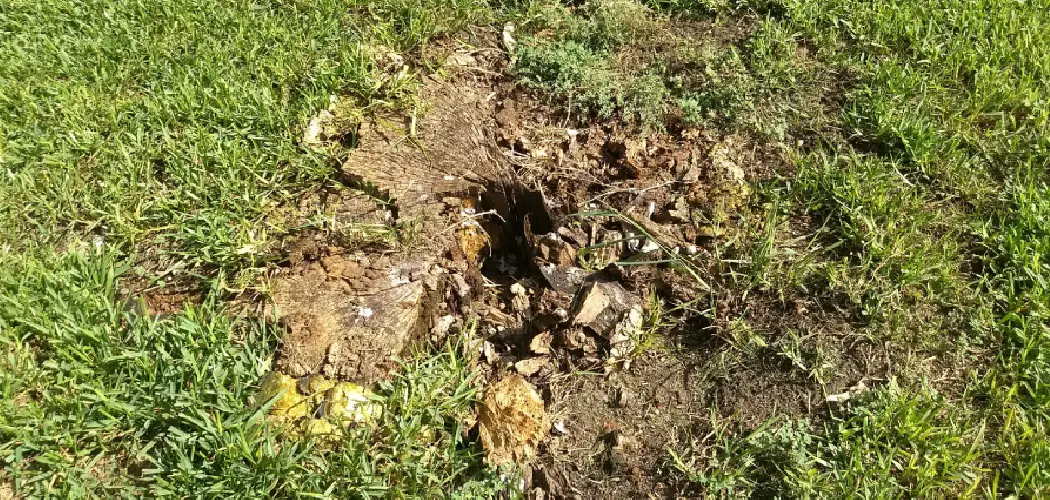Do you have a rotten or unsightly tree stump in your yard? Stump grinding is an effective and low-labor way to get rid of it. However, after the stump is gone, what do you do with the resulting hole left behind? Luckily, there are several options that can help fill it in and make your landscape look complete again. In this blog post, we will outline some of the best techniques of how to fill hole after stump grinding so that you can quickly and easily finish off your landscaping project and turn a potential eyesore into a beautiful addition to your yard!
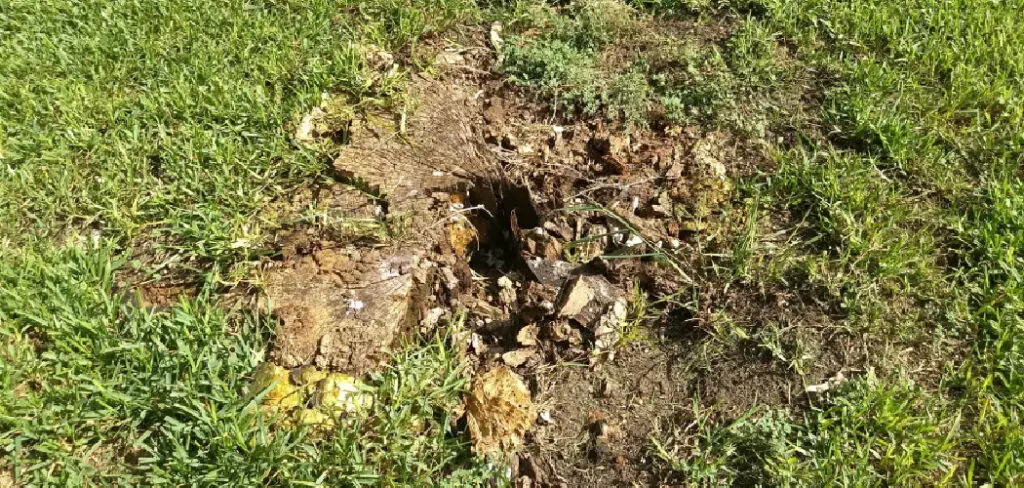
If you’ve recently had a tree stump ground down on your property, then you know the mess it can leave behind. Sure, the unsightly old stump is gone, but now there’s a large hole left in its place that needs to be filled as quickly as possible. Depending on how much work was done and what type of soil is on your land, filling the hole after stump grinding may involve different approaches. Here, we’ll provide you with all the information you need to know about picking out appropriate material for backfilling a hole left by grinding down stumps, plus advice on planning ahead to prevent sinkholes from forming in future projects like these.
Why is It Important to Fill Hole After Stump Grinding?
It is important to fill the hole left after stump grinding for many reasons. Such as:
1. To Prevent Sinkholes
When left unfilled, the hole left after stump grinding can encourage the formation of sinkholes. This is because it creates a void in the ground, allowing water to run into and accumulate beneath the surface. As this water accumulates and erodes away soil particles, it eventually creates an empty space which leads to a sinkhole.
2. To Prevent Weed Growth
Weeds are notoriously hardy and can thrive in even the driest of conditions. If a hole left after stump grinding is left unfilled, it provides the perfect habitat for weeds to grow and spread. When filled with soil, however, this hole will be unable to provide adequate nutrients or moisture that are necessary for weed growth.
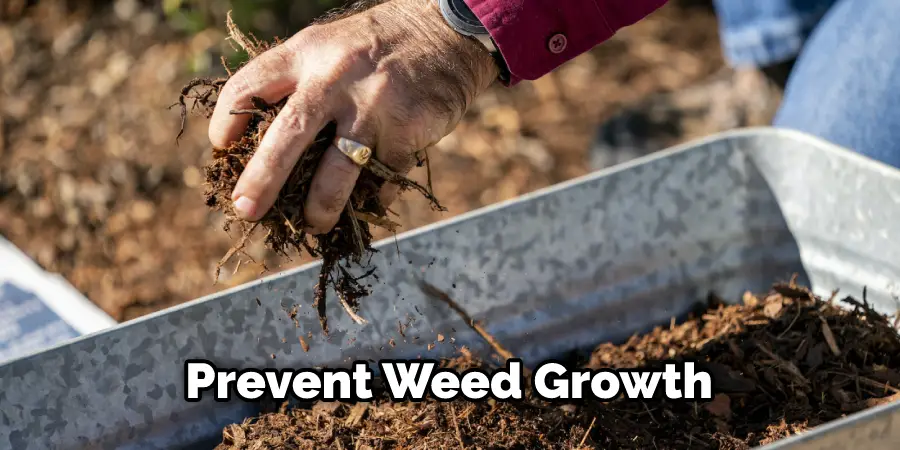
3. To Prevent Pests
Open, unfilled holes can also attract pests such as rats, mice, and other animals that feed on plant material or insects. Filling the hole with soil helps to reduce the chances of these pests infesting your property by eliminating their access to food sources or habitat areas.
4. To Maintain Aesthetic Appeal
Filling the hole left after stump grinding is also important for maintaining the aesthetic appeal of your property. An open and unfilled hole can be an eyesore that detracts from the beauty and value of your home or business. Filling it with soil helps to keep your landscaping looking neat and attractive.
Filling the hole left after stump grinding is a simple and effective way to help protect your property from potential damage caused by sinkholes, weed growth, or pests. It is also important for maintaining aesthetic appeal and helping to increase the value of your home or business. Be sure to fill any holes left after grinding with soil as soon as possible for the best results!
How to Fill Hole After Stump Grinding in 6 Easy Steps
Step 1: Gather the Materials
Before filling your hole, you will need to gather the necessary materials. You will need topsoil, compost, and grass seeds for planting new grass over the area. You will also need a shovel, rake, and wheelbarrow or another container for transporting all of your materials.
Step 2: Remove Debris and Stones
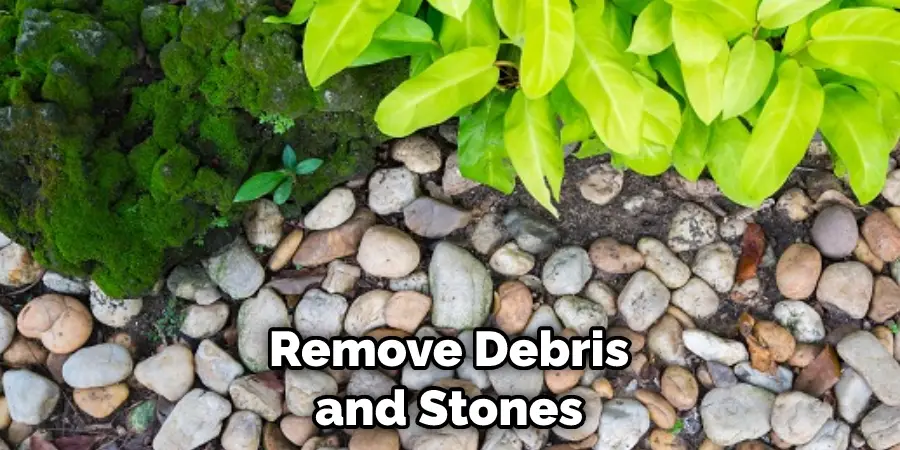
Once you have all of the necessary materials, it’s time to begin. Start by removing any debris or stones from the surrounding area. This will help ensure that your new grass has an even surface to grow on. Also, remove any remaining chunks of wood from the stump grinding.
Step 3: Add Topsoil and Compost
Now that you have removed all of the debris, it’s time to fill in the hole. Begin by adding a layer of topsoil and compost to the area, making sure to pack it down firmly as you go. This will help create an even surface for the grass to grow.
Step 4: Level and Smooth Surface
Use a rake or shovel to level out the surface of the soil and make sure it is smooth. This will give your new grass the best chance of growing properly. Be careful to avoid creating any dips or bumps while smoothing the surface.
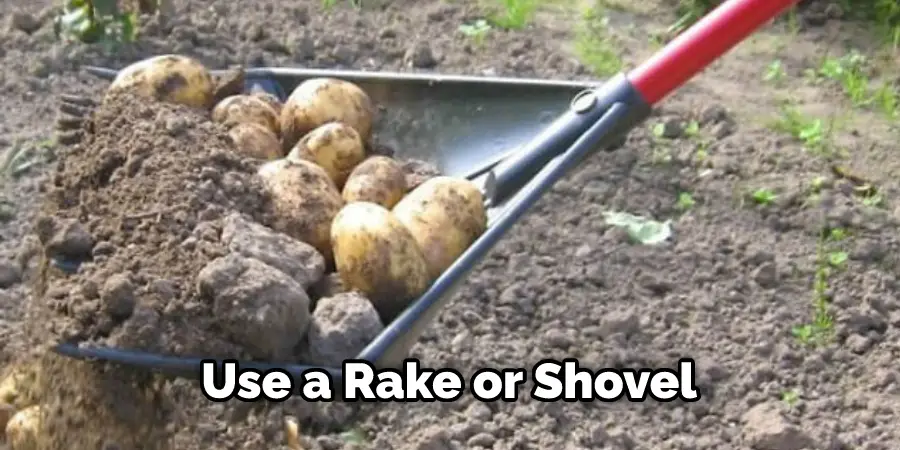
Step 5: Plant Grass Seeds
Once you have a level and smooth surface, it’s time to plant your grass seeds. Sprinkle them over the area evenly and cover with a thin layer of soil or compost. You can also use pre-seeded rolls for this step, which will save you time and effort.
Step 6: Water the Area
The last step is to water your newly planted grass seeds. This will help them to germinate and start growing quickly. Make sure to water the area regularly for best results. Make sure not to overwater, as this can drown the seeds or cause them to rot.
Following these steps, you should have a smooth surface for your new grass to grow on after stump grinding. With some effort and patience, you will be able to fill in the hole left behind from stump grinding and create a lush lawn you can be proud of. Good luck!
Some Additional Tips to Fill Hole After Stump Grinding
1. Use Topsoil to Fill in the Hole
This is the most common method of filling in the hole after stump grinding. Spread a layer of topsoil on the ground, then use a shovel to fill the hole with topsoil and pack it down. This will help create a sturdy surface that is perfect for planting grass seeds or other plants.
2. Move Existing Soil From Another Area
If you have extra soil in your yard, you can use it to fill the hole after stump grinding. Just shovel the soil into the hole and pack it down. This is a great way to re-purpose soil that you don’t need elsewhere in your yard. Also, by using existing soil, you can help improve the nutrients in your garden.
3. Plant a Tree or Shrub
If you don’t want to fill in the hole after stump grinding, consider planting a tree or shrub instead. This way, you can create a beautiful focal point and disguise the area where the stump was removed. Make sure you choose a species of tree or shrub that will thrive in your area, and consider the size of the plant when it is fully grown.
4. Place Mulch Around Area
Mulching around the area where the stump was removed can help to cover any exposed roots and make the area look more attractive. Choose a mulch that will complement the rest of your landscaping design and lay pavers around the area. This can help improve your yard’s aesthetic appeal while discouraging weed growth.
5. Install a Plant Bed
If you want to make use of the space where the stump was removed, consider installing a plant bed there. This way, you can use the area for growing flowers, herbs, or vegetables. Make sure you prepare the soil properly and choose plants that will thrive in your climate. You can also add a decorative border around the bed to make it look more appealing.
6. Leave It As Is
If you don’t want to fill in the hole after stump grinding, you can always just leave it as is. This may take a bit more upkeep, as weeds may grow in the area and need to be removed. But, leaving it as is can provide a natural look that some people prefer.
7. Add Decorative Stones
Another option is to cover the area with decorative stones or gravel. This can help create a unique and attractive look while allowing the roots beneath to get enough air and water. Choose a stone that will match your landscaping design, then spread it over the hole.

By following these tips, you can easily fill in the hole after stump grinding and make sure that your yard looks its best. Whether you use topsoil, existing soil, or plants to fill in the hole, make sure you take the time to create a beautiful landscape that will stand out from the rest of your yard. With some careful planning and attention to detail, you can turn any area where a stump was removed into an eye-catching feature of your yard.
Conclusion
Now you know how to fill hole after stump grinding. By following these steps, you can easily fill in the hole left behind from stump grinding and create a lush lawn you’ll be proud to show off. Whether you use topsoil, existing soil, or plants to fill in the hole, make sure to take your time and get creative with your design.
With some effort and patience, you’ll be able to turn a stump grinding project into an attractive landscape feature. Make sure to take your time and get creative with your design. With some effort and patience, you’ll be able to transform the area where the stump was removed into a beautiful landscape feature. Don’t forget to share your results with us on social media! Good luck and have fun!
About
Outdoor Fixes is a distinguished figure in the world of Diy design, with a decade of expertise creating innovative and sustainable Diy solutions.
His professional focus lies in merging traditional craftsmanship with modern manufacturing techniques,
fostering designs that are both practical and environmentally conscious. As the author of diy,
outdoorfixes delves into the art and science of outdoorfixes-making, inspiring artisans and industry professionals alike.
Education RMIT University
(Melbourne, Australia) Associate Degree in Design (Outdoor Fixes) Focus on sustainable design, industry-driven projects,
and practical craftsmanship. Gained hands-on experience with traditional and digital manufacturing tools, such as CAD and CNC software.
Nottingham Trent University
(United Kingdom) Bachelor’s in outdoorfixes.com and Product Design (Honors) Specialized in product design with a focus on blending creativity with production
techniques. Participated in industry projects, working with companies like John Lewis and Vitsoe to gain real-world insights.
Publications and Impact
In diy, Outdoor Fixes his insights on indoor design processes, materials, and strategies for efficient production.
His writing bridges the gap between artisan knowledge and modern industry needs, making it a must-read for both budding designers and seasoned professionals.

